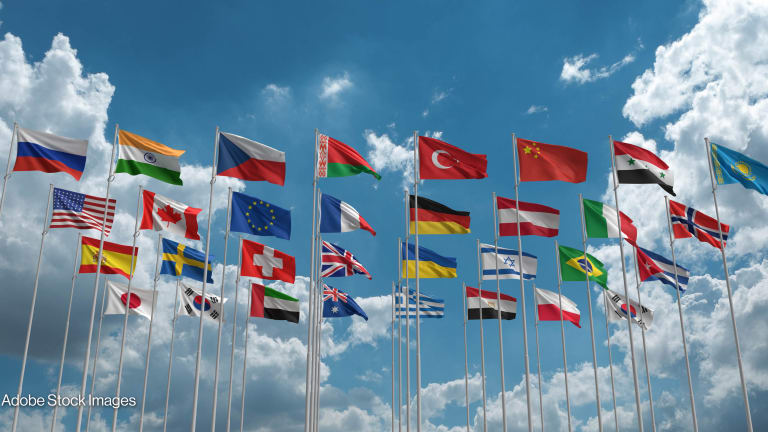
Standards are a hidden part of the information and communications technology networks and devices that we all use every day. Though rarely perceived by users, they are vital in enabling the interconnection and interoperability of ICT equipment and devices manufactured by hundreds of thousands of different companies around the world.
For example, 95% of internet traffic is on fiber, built on standards from the International Telecommunication Union, a specialized agency of the United Nations for ICT. ITU has also played a leading role in managing the radio spectrum and developing globally applicable standards for 5G cellular networks.
But while technical standards are clearly indispensable for business and society to work in our industrialized world, it is also becoming clear that technical standards have a key role in addressing the Sustainable Development Goals.
Indeed, the focus of the recent ITU Global Standards Symposium, which brought together more than 700 industry leaders and policymakers, was how standards can help address some of the most pressing needs of the planet, such as eradicating poverty or hunger and mitigating climate change.
To address SDGs 1 and 2 on ending poverty and hunger, an ITU focus group on “Artificial Intelligence (AI) and Internet of Things (IoT) for Digital Agriculture” is working toward new standards to support global improvements in the precision and sustainability of farming techniques.
Under ITU and the World Health Organization, a focus group on “Artificial Intelligence for Health” aims to establish an “open code” benchmarking platform, highlighting the type of metrics that could help developers and health regulators certify future AI solutions in the same way as is done for medical equipment. Also, standards for medical-grade digital health devices — such as connected blood pressure cuffs, glucose monitors, or weight scales — are helping prevent and manage chronic conditions such as diabetes, high blood pressure, and heart disease.
Standards are helping bring broadband to rural communities with lightweight optical cable that can be deployed on the ground’s surface with minimal expense and environmental impact. The installation of ultrahigh-speed optical networks typically comes with a great deal of cost and complexity. Standards can change that equation by providing a solution able to be deployed at low cost with everyday tools.
To address SDG 11 on sustainable cities and communities, more than 150 cities around the world have started evaluating their progress toward smart-city objectives and alignment with the SDGs using so-called key performance indicators based on tech standards. These cities are supported by United for Smart Sustainable Cities, an initiative backed by ITU and 16 other U.N. partners.
International standards, recognized around the world, are essential for making technologies … accessible and useful to everyone, everywhere.
—Addressing SDGs related to climate action and green energy, ITU standards for green ICT include sustainable power-feeding solutions for 5G networks, as well as smart energy solutions for telecom sites and data centers that prioritize the intake of power from renewable energy sources. They also cover the use of AI and big data to optimize data center energy efficiency and innovative techniques to reduce energy needs for data center cooling.
Financial inclusion is another key area of action to achieve SDG 1 on ending poverty. Digital channels are bringing life-changing financial services to millions of people for the very first time. Enormous advances have been made within the Financial Inclusion Global Initiative and the associated development of technical standards in support of secure financial applications and services, as well as reliable digital infrastructure and the resulting consumer trust that our money and digital identities are safe.
However, the complexity of global problems requires numerous organizations with different objectives and profiles to work toward common goals. Leading developers of international ICT standards need to work together to address the SDGs, using frameworks such as the World Standards Cooperation, with the support of mechanisms such as the Standards Programme Coordination Group — reviewing activities, identifying standards gaps and opportunities, and ensuring comprehensive standardization solutions to global challenges.
Including a greater variety of voices in standards discussions is crucial. It is particularly important that low- and middle-income countries are heard and that a multistakeholder approach is made a priority to have a successful and inclusive digital transformation.
Uncoordinated and noninclusive standardization can spell lasting harm for countries that already struggle to afford long-term socioeconomic investments. Without global and regional coordination, today’s digital revolution could produce uneven results, making it imperative that all standards bodies work cohesively.
Sustainable digital transformation requires political will. It was notable that last year in Italy for the first time, leaders from the G-20 group of nations used their final communiqué to acknowledge the importance of international consensus-based standards to digital transformation and sustainable development.
This important step could not have been made by one standards body alone.
Cities, governments, and companies face a significant learning curve while adopting new tech as part of low-carbon, sustainable, citizen-centric development strategies to meet the challenge of addressing the SDGs. International standards, recognized around the world, are essential for making technologies in areas like digital health and 5G — combined with bigger and better data use — accessible and useful to everyone, everywhere.








